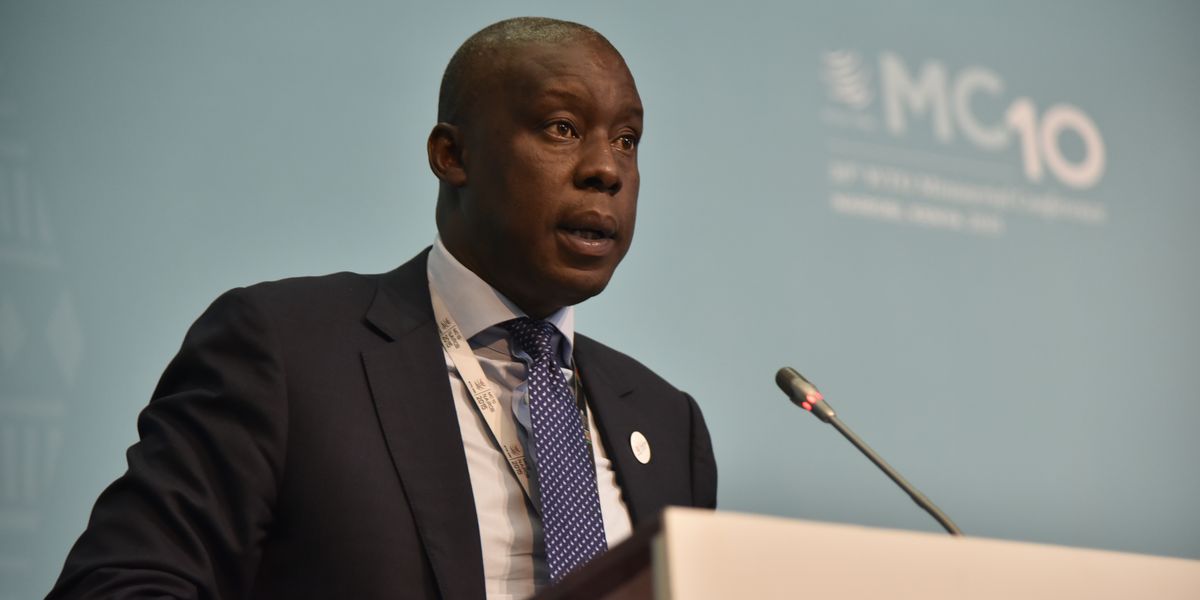The Call for Reparations: A Controversial Debate Ahead of the Commonwealth Summit
As the Commonwealth prepares for its upcoming summit in Samoa, a provocative statement from Joshua Setipa, a leading contender for the position of Commonwealth Secretary-General, has reignited the contentious debate surrounding reparations for colonialism. Setipa, the former trade minister for Lesotho, asserted in an interview with The Financial Times that the UK owes India "more money than it has" in reparations for its colonial past. This bold claim has not only drawn attention but also set the stage for potential political tensions as leaders gather to discuss pressing global issues.
The Context of Setipa’s Statement
Setipa’s remarks come at a time when discussions about reparations are gaining momentum, particularly among Caribbean nations advocating for compensation for the historical injustices of slavery and colonialism. His assertion highlights the financial implications of colonial exploitation, suggesting that the UK’s historical debts to its former colonies are vast and perhaps insurmountable. The Commonwealth, as a collective of nations with shared histories, is seen by Setipa as the ideal platform to address these issues and make a "political commitment" towards reparations.
Downing Street’s Firm Stance
Despite the growing discourse on reparations, the UK government has firmly stated that such discussions are "not on the agenda" for the Commonwealth Heads of Government Meeting. A spokesperson from Downing Street reiterated that the government’s position remains unchanged: "We do not pay reparations." This clear dismissal of reparations as a topic of discussion underscores the complexities and sensitivities surrounding the issue, particularly in the context of diplomatic relations within the Commonwealth.
The Broader Implications of Reparations
Setipa’s comments have sparked a broader conversation about the need for systemic reform in the global financial system. He argues that wealthier nations should take the lead in providing more loans and grants to developing countries, rather than merely offering financial reparations. This perspective shifts the focus from direct compensation to a more comprehensive approach aimed at addressing the long-term impacts of colonialism and slavery.
While Setipa acknowledges that "cheques" alone would not suffice to rectify the historical injustices faced by colonized nations, his call for a reformed financial system reflects a growing recognition that reparations must be part of a larger strategy for economic justice and equity.
Support for Reparations Among Commonwealth Candidates
Interestingly, all three candidates vying for the Commonwealth Secretary-General position appear to be open to the idea of reparations. This consensus among the candidates indicates a significant shift in the dialogue surrounding colonial legacies and the responsibilities of former colonial powers. The support for reparations is not limited to Setipa; other leaders, such as Barbados Prime Minister Mia Mottley, have also called for reparations as part of a new "global reset," emphasizing the need for acknowledgment and restitution for historical wrongs.
Historical Context and Calls for Justice
The conversation around reparations is not new. In 2018, UK Foreign Secretary David Lammy called for reparations in the wake of the Windrush scandal, emphasizing that the Caribbean community would not forget its history and demanded more than just apologies. This sentiment resonates with many who believe that reparations are essential for healing and reconciliation.
Conclusion: A Divisive Issue on the Global Stage
As the Commonwealth Heads of Government Meeting approaches, the issue of reparations remains a divisive topic. Setipa’s remarks have brought renewed attention to the historical debts owed by former colonial powers, particularly the UK. While the UK government maintains its stance against reparations, the growing support for discussions around compensation and systemic reform indicates that this issue will continue to be a focal point in international relations.
The upcoming summit in Samoa will not only serve as a platform for discussing pressing global issues but also as a litmus test for the Commonwealth’s commitment to addressing its colonial past. As leaders gather, the question remains: how will the Commonwealth navigate the complexities of reparations, and what steps will be taken to ensure justice for those affected by colonialism? The answers to these questions may shape the future of the Commonwealth and its member nations for years to come.
